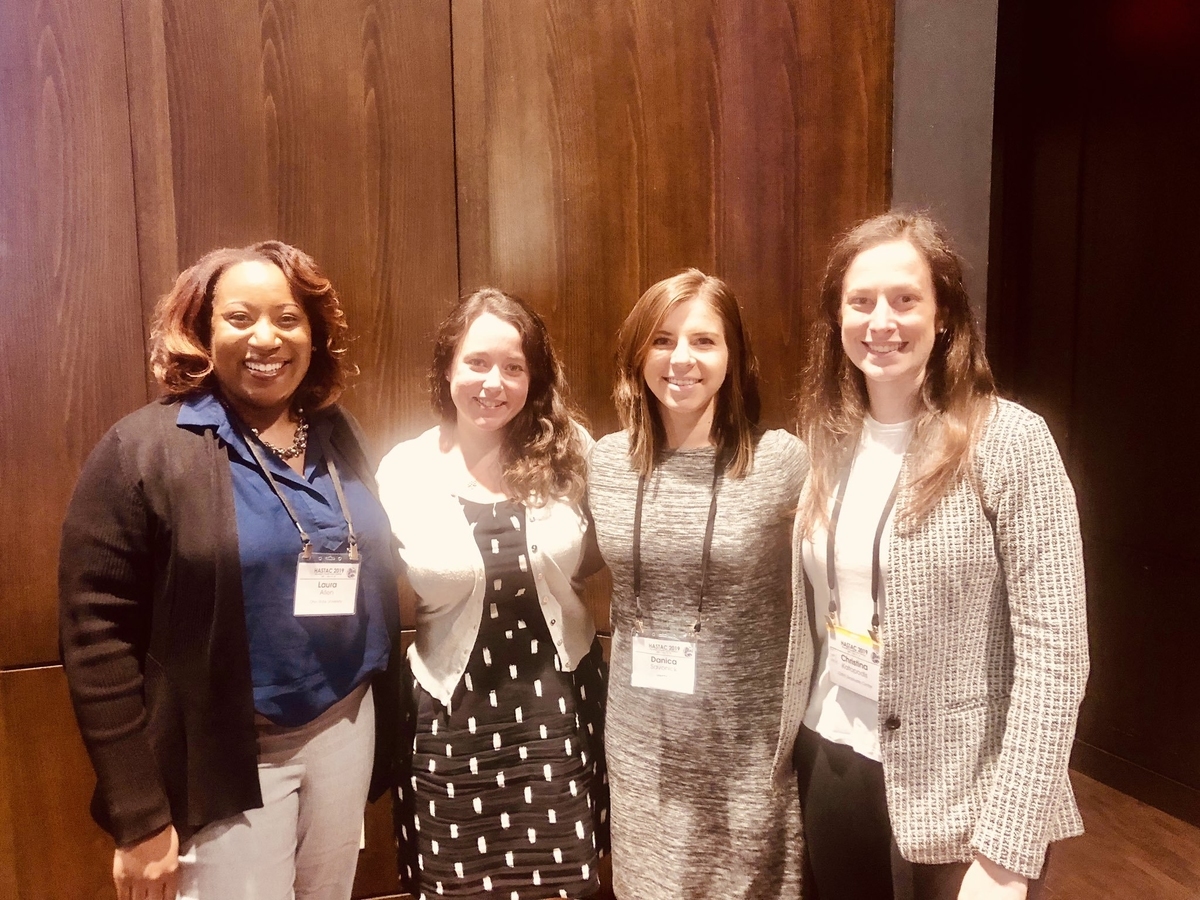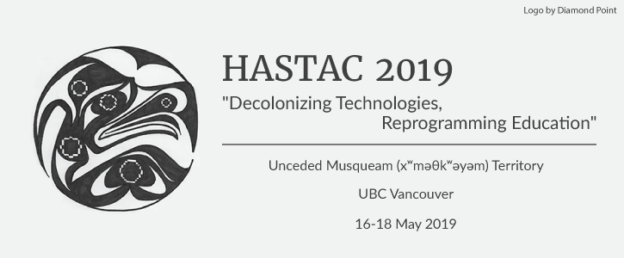Last week, we took Progressive Pedagogy on the road to two conferences in Vancouver: Digital Democracies at Simon Fraser University (SFU) and HASTAC’s Decolonizing Technologies, Reprogramming Education at the University of British Columbia (UBC).
On Thursday, May 16, Cathy N. Davidson, Erin Rose Glass, Christina Katopodis, Danica Savonick, and Siqi Tu led a workshop at SFU called, “The Classroom as Training Ground for Digital Democracy.”
Professor Cathy N. Davidson (GC CUNY) introduced the topic of the panel and gave a brief history of education in the U.S., which is largely still based on the 19th-century industrial education complex. Professor Davidson asked us to imagine a different classroom structure, one that could be a training ground for digital democracy. View her slides here.
The remaining panelists delivered *enlightening* talks (inspired by Anne Balsamo’s term).
Erin Rose Glass (UC San Diego) gave an amazing presentation on “Fostering Digital Democracy through Ethical Ed Tech” (view her slides), reminding us that “the classroom is an opportunity to expose students to tech practices that value community governance, user privacy, and software freedom.”
Danica Savonick (SUNY Cortland) presented “Write Out Loud: The Democratic Praxis of Public Writing” (view her slides here), in which she shared the public-facing projects of her students, quoting Toni Cade Bambara, who said, “Do not write term papers for me… Make sure they are useful for somebody else as well.”
Christina Katopodis (GC CUNY) shared her “Lesson Plan for Democratic Co-Creation: Forging a Syllabus by Students, for Students,” using her Fall 2018 American literature survey course as a case study in co-creating a syllabus with students. View her slides here.
Siqi Tu (GC CUNY) discussed her co-creation methods with her students in developing a midterm exam collectively as a class in “What Students Learn About Evaluation and Collectivity from Collaborative Test Making.”
Although we had planned to do an activity with participants, the audience vetoed this in favor of spending more time in a Q&A discussion. We thank participants for bringing up such excellent questions and for sharing their innovative pedagogical strategies with us.

On Saturday, May 18, during the 2019 HASTAC conference hosted on the traditional, ancestral, and unceded territory of the hən̓q̓əmin̓əm̓-speaking Musqueam (xʷməθkʷəy̓əm) people, Laura L. Allen, Christina Katopodis, Danica Savonick, and Lisa Tagliaferri presented on their panel, “Decolonizing (Digital) Pedagogy.”
Danica Savonick, Assistant Prof of English at SUNY Cortland, led participants in a workshop that problematized the words “decolonize” and “decolonial.” Participants discussed three key quotations from Eve Tuck and K. Wayne Yang’s “Decolonization is not a metaphor,” Sandy Grande’s Red Pedagogy and Walter Mignolo and Catherine E. Walsh’s On Decoloniality. Read her slides here.
Lisa Tagliaferri, Postdoctoral Associate in the Digital Humanities at MIT, discussed how to build interdisciplinary tools through radical collaboration that brings humanistic critique into development workflows with computer science students.
Laura Allen, Doctoral Candidate in English at Ohio State University, spoke about decolonizing mobile technologies through classroom activities that encourage students to explicitly address racism, sexism, and classism within smartphone apps and mobile technology culture broadly. View her slides here.
Christina Katopodis, Doctoral Candidate in English at The Graduate Center, CUNY, talked about co-creating syllabi with students using digital tools and a democratic classroom structure that gives students more control over their own education. View her slides here.
We are grateful to the amazing audience and fruitful discussions we had in person and on Twitter, and to Lisa for live-tweeting much of the session to amplify and share our pedagogical strategies with other educators online.
